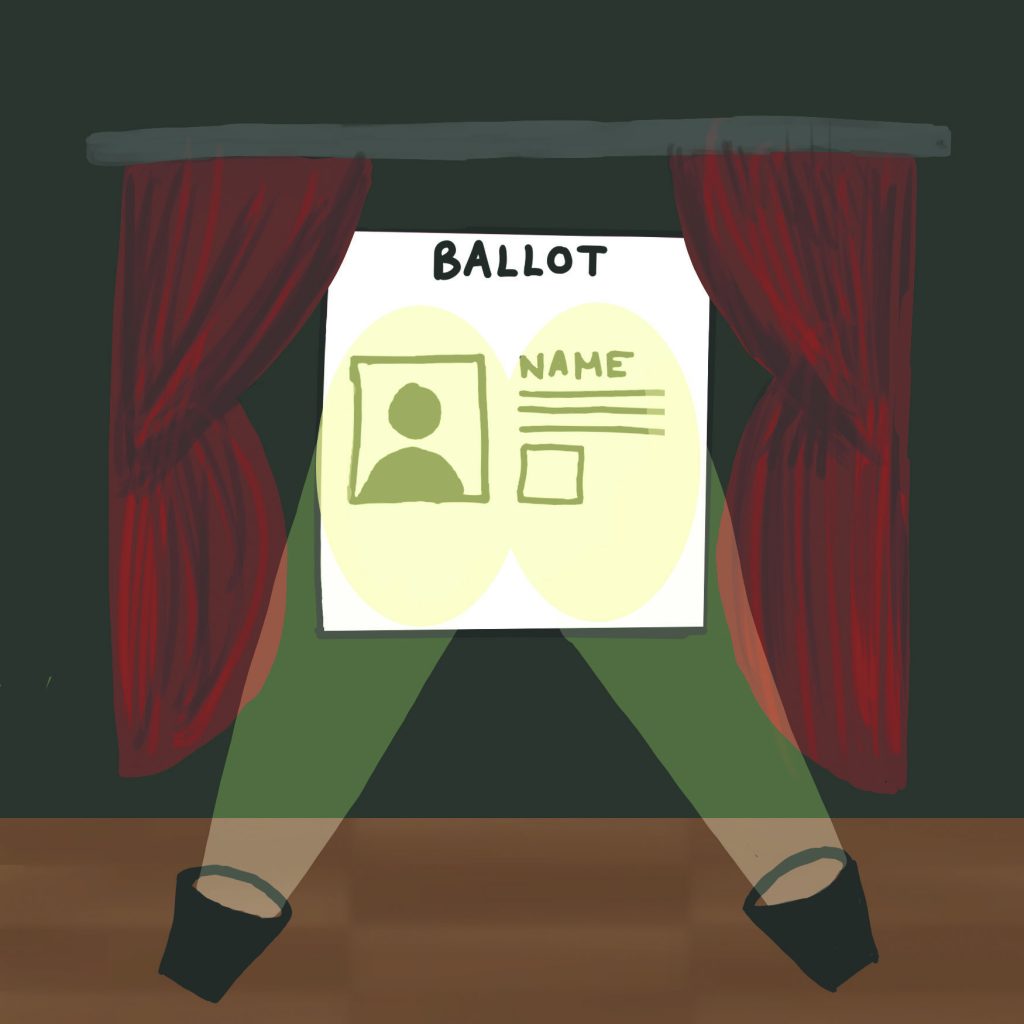On March 17, Binghamton University students will see fewer options than usual on their ballots when they vote in the 2020 Student Association (SA) E-Board election.
Each of the six open positions on the SA E-Board are uncontested, meaning that unless a write-in receives more votes than the name on the ballot, the positions will be filled by whoever’s name is already there.
The SA is a unique and important part of how campus is shaped year to year. A governing body of undergraduates, the SA ensures that student groups can function with substantive funding, advocates for the interests of the student body through their relationship to BU’s administration and tries to give students as many opportunities as they can afford. Not every university has its own SA, and not every university that does has the same power to effect change that we have. All in all, without the SA, campus life would likely be much less exciting and fulfilling.
It’s for this very reason that it’s so disappointing to see participation in our student government decline dramatically in recent years. Elections for the 2019-20 E-Board saw a 33 percent decrease in votes from the year prior, landing at just 2,062 votes in total. BU students are aware of this, with some students saying they might not vote at all because they feel like their vote won’t impact the election. Worse yet, this diminishing interest in the SA elections is reflected in the extremely limited number of candidates running for SA E-Board this year.
The SA made a number of honorable attempts this year at increasing student interest in their elections, but unfortunately, it appears it may have not been enough. Despite posting advertisements throughout campus and extending the letter of intent period, the SA only saw a modest improvement in the number of candidates on the ballot. With this extension, one vice president for multicultural affairs candidate was able to qualify for the ballot. Two candidates for the BU Council Representative position, which is not part of the SA E-Board, were also added. This, however, meant the SA Elections and Judiciary Committee could not finalize the ballot until after its formal deadline.
The main reason students cited for not running in this year’s election is a concern about making a time commitment to the SA. While this is certainly not irrational, it’s worth noting that the minimum hours the SA E-Board works are generally close to 20 to 30 hours a week, which is equivalent to the time commitment one would make to a part-time job. Additionally, whereas most student leaders receive no compensation for their time, the SA E-Board does — roughly $6 an hour for the minimum hours they’re expected to work. This also includes access to private offices and SA resources which are not accessible to most students, not to mention the invaluable experience of being a representative for a body of about 14,000 undergraduate students.
SA President Emma Ross wrote in an email that the most valuable part of being in the SA’s leadership “is the level of responsibility we have. It promotes a lot of lifelong skills and requires a lot of dedication to the job and teaches you how to prioritize. You also get to interact with an incredible amount of people that you never would have met otherwise, from student leaders, community members, committee heads and administrators.” Ross also noted that leaders learn “so much about our campus.”
Although it’s too late to apply to appear on the election ballot, every position allows for write-ins. Just because there is only one person running for each position, each and every undergraduate is eligible to be a candidate come election day. If you feel like you might be the right person for an SA E-Board role, the Editorial Board suggests you start canvassing and campaigning right away — otherwise, the elections on March 17 will be marked by a historically lonely ballot.



